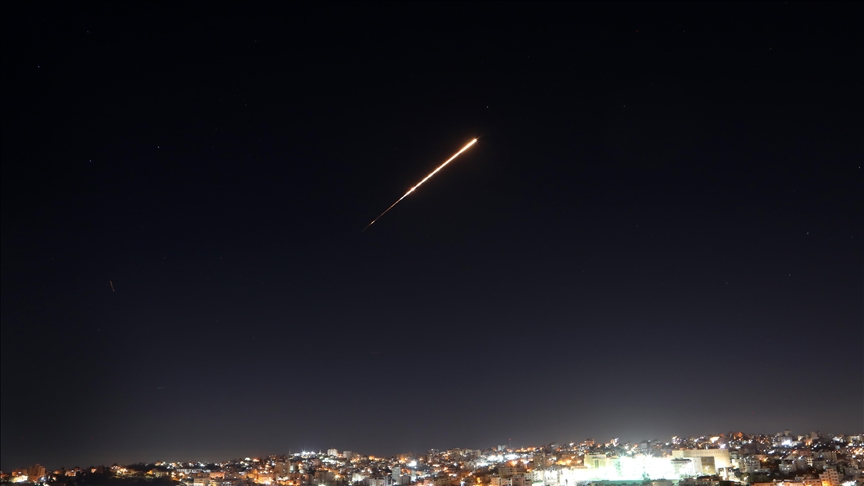Gaza City Faces Relentless Bombardment Overnight
In the latest and most intense wave of violence so far, Israel has launched what appears to be the beginning of a full-fledged ground offensive into Gaza City. The strikes began overnight, shaking the region with a level of force that residents say they hadn’t experienced before. Areas of central Gaza are also being hit, pushing families already displaced by previous bombings even further out into danger.
This rapid escalation, many believe, is part of a long-planned military response. Israel’s Defence Minister Yoav Gallant offered a chilling summary in just four words: “Gaza is burning.” And for many watching, he wasn’t wrong.
Timeline of Events
- Midnight – 2 AM: Multiple airstrikes reported across Gaza City, including residential areas.
- 3 AM: Communications blackout reported by local journalists. International media lose contact with sources on the ground.
- 5 AM: Unconfirmed reports surface from Axios and the Jerusalem Post about a large-scale Israeli ground offensive starting in Gaza City.
- 8 AM: Israel’s Defense Minister confirms the intensity of the attacks, but stops short of explicitly announcing a complete invasion.
Official Statements
Speaking to the press on Thursday morning, Defence Minister Gallant didn’t hold back. “Hamas will find no shelter in Gaza,” he said. “We are going neighborhood by neighborhood. The pressure will not stop until objectives are achieved. Gaza is burning because it has to.”
Israeli military representatives echoed that sentiment, suggesting that the operation has entered a new phase. But there remains vagueness. A senior military spokesperson shared anonymously, “Phase three is not officially declared, but ask anyone in Gaza — it’s already underway.”
How Gaza Is Experiencing This
In short? It’s chaos. Bombings, confusion, panic. Even before this new offensive, life in Gaza was hanging by a thread. People had been living with shortages of food, clean water, and basic medicine. Today, those threads seem to be unraveling entirely.
“We hid in the stairwell for six hours as planes flew above. We can’t move. We can’t leave. Where would we go?” said Amal, a mother of three sheltering in central Gaza.
I think what made people sit up was the sheer scale of the airstrikes. You might have seen videos circulating online. Giant fireballs. Dozens of buildings gone. Some locals are calling it the worst night since the initial outbreak of violence in early October.
On the Ground: Stories of Displacement and Despair
Thousands are fleeing southward — again. The roads leading out of Gaza City are filled with cars, donkeys, bicycles, and people on foot. Entire families are carrying whatever they can fit in a single bag. Many are heading toward the city of Khan Younis. Yet even there, explosions have been reported.
Personal Accounts
- Mohammed, a hospital nurse, said he slept two hours in three days. “Babies born premature are dying. We don’t have power for incubators.”
- Rasha, a 19-year-old university student, described losing three relatives in a single strike. “We don’t even have time to grieve,” she said. “We just run.”
Why This Offensive, Why Now?
The lead-up to this military drive wasn’t exactly subtle. Israeli officials had been signaling it for weeks. But still, the suddenness of last night’s strikes caught many off guard. Analysts suggest that it may be driven by both operational concerns — like pushing Hamas fighters out of tunnels — and political pressures from within Israel.
Some believe it’s also intended to send a message: this war is far from over. But others argue, what’s the long-term strategy here?
Community Response & Global Reactions
Internationally, the response has ranged from urgent calls for ceasefire to muted statements of concern. The United Nations has warned of a worsening humanitarian crisis. Aid groups report being unable to deliver supplies due to the intensity of the ground operations and the near-total blackout of communications in the area.
- UNICEF called for an immediate humanitarian corridor to be opened.
- Doctors Without Borders said they lost contact with their Gaza teams overnight.
- The European Union issued a statement saying the collective punishment of civilians must stop.
Meanwhile, the US has remained cautious in its public statements, reiterating that Israel “has a right to defend itself,” while hinting at urging restraint behind the scenes.
Looking Ahead
Where is this heading? No one really knows. The Israeli ground operation could remain limited — or it could escalate further. There’s fear that this might mark the start of prolonged urban combat in Gaza City, one of the most densely populated areas on Earth.
What’s clear so far is that the human toll is climbing — and fast. Whether this will lead to a decisive military outcome or only more civilians caught in the rubble remains uneasy speculation.
One thing I think we can all agree on: ordinary people didn’t ask for this. And every child in Gaza hiding under the rubble of their home likely agrees.
Key Takeaways
- Israel has launched a heavy bombardment and what appears to be a ground offensive into Gaza City.
- Israeli Defence Minister said, “Gaza is burning,” indicating the scale of the attack.
- Civilians in Gaza report extreme hardships, including displacement, injury, and lack of medical access.
- Global humanitarian groups are struggling to assist due to ongoing strikes and infrastructure damage.
- The future trajectory of the conflict remains uncertain, with both sides preparing for an extended confrontation.

